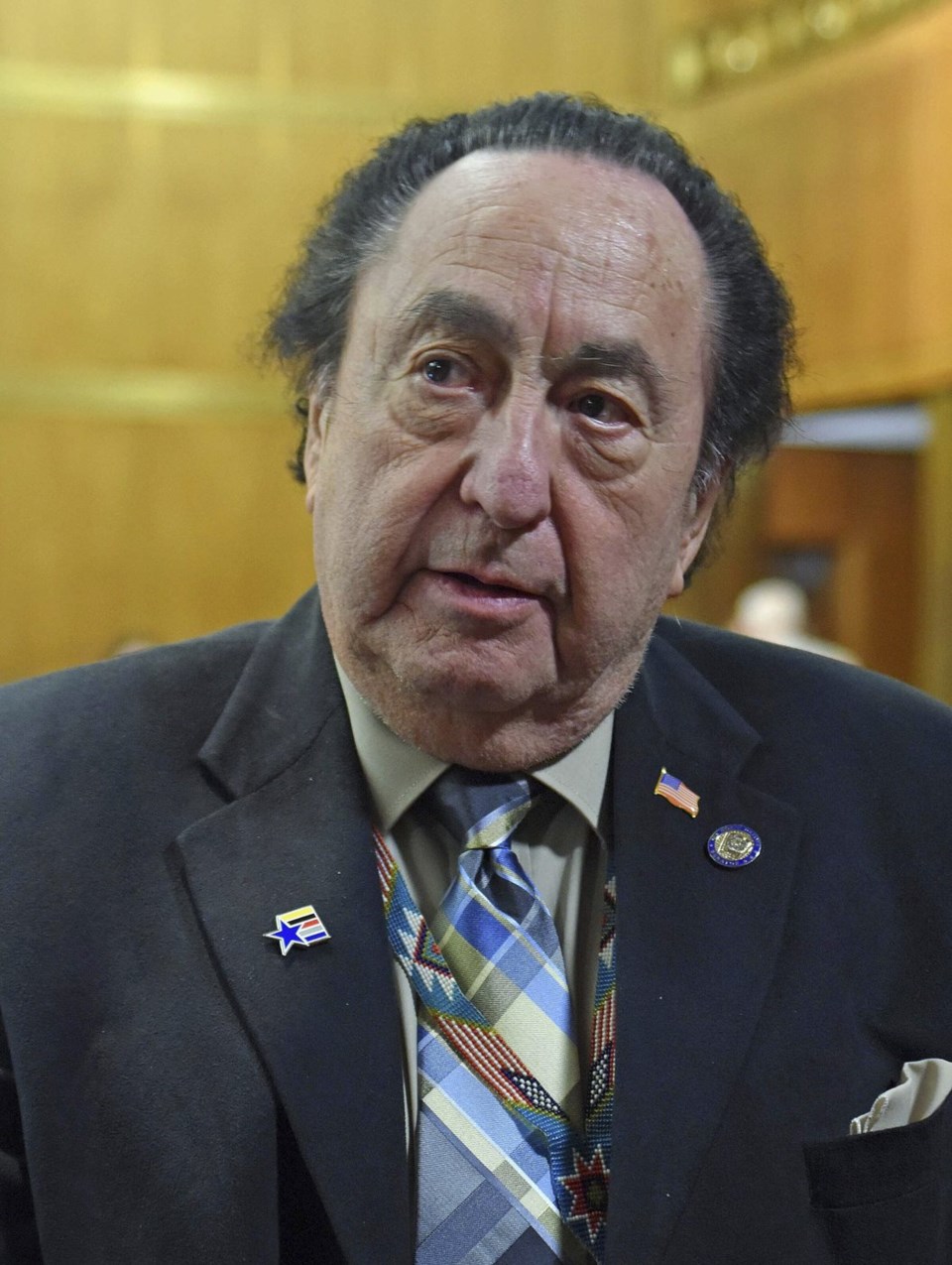WASHINGTON (AP) — Indigenous activist Leonard Peltier will return home nearly half a century after he was imprisoned for the 1975 killings of two FBI agents. President Joe Biden commuted Peltier's sentence Monday following decades of community-led advocacy calling his imprisonment an example of the U.S. government's mistreatment of Native Americans.
The White House said Peltier, who is now 80 and of declining health, will transition to home confinement. The commutation is not a pardon for crimes committed, a decision some of Peltier's advocates welcomed since he has always maintained his innocence. But the last-minute move as Biden left office angered law enforcement officers who believe he is guilty.
The National Congress of American Indians celebrated the “historic” decision in a statement saying the case "has long symbolized the systemic injustices faced by Indigenous Peoples.”
The president commuted Peltier over the objection of former FBI Director Christopher Wray. In a private letter sent to Biden earlier this month and obtained by The Associated Press, Wray reiterated his position that “Peltier is a remorseless killer,” and urged the president not to act.
“Granting Peltier any relief from his conviction or sentence is wholly unjustified and would be an affront to the rule of law,” Wray wrote.
Peltier was active in the American Indian Movement, which has grappled with police brutality and discrimination against Native Americans since the 1960s.
The movement grabbed headlines in 1973 when it took over the village of Wounded Knee on Pine Ridge — the Oglala Lakota Nation’s reservation in South Dakota — leading to a 71-day standoff with federal agents.
Peltier has long admitted he was present and firing during the June 26, 1975, confrontation with FBI agents who went to Pine Ridge to serve arrest warrants amid battles over Native treaty rights and self-determination.
After being injured in a shootout, agents Jack Coler and Ronald Williams were shot in the head at close range, the FBI said. AIM member Joseph Stuntz also was killed. Peltier fled to Canada but was extradited to the United States and convicted on two counts of first-degree murder. He was sentenced to life in prison in 1977, despite defense claims of falsified evidence.
Two other movement members and Peltier’s co-defendants, Robert Robideau and Dino Butler, were acquitted in the killings.
Peltier was denied parole as recently as July, and wasn’t eligible for parole again until 2026.
Chauncey Peltier, who was 10 when his father was locked up, said Monday he was shocked and thrilled.
“It means my dad finally gets to go home,” Peltier said. “One of the biggest rights violation cases in history and one of the longest-held political prisoners in the United States. And he gets to go home finally. Man, I can’t explain how I feel.”
Peltier's tribe, the Turtle Mountain Band of Chippewa, has a home ready for him on the Turtle Mountain Indian Reservation in Belcourt, North Dakota, his son said.
Bureau of Prisons spokesperson Emery Nelson said Peltier remained incarcerated Monday at USP Coleman, a high-security prison in Florida. Peltier's lawyer said his release date was tentatively set for Feb. 18.
The commutation Monday follows decades of lobbying and protests by Native American leaders and others who maintain Peltier was wrongfully convicted. Amnesty International has long considered him a political prisoner. Advocates for his release included Archbishop Desmond Tutu, civil rights icon Coretta Scott King, actor and director Robert Redford, and musicians Pete Seeger, Harry Belafonte and Jackson Browne.
But law enforcement officers, former FBI agents, their families and prosecutors strongly opposed a pardon or any reduction in Peltier’s sentence. Democratic Presidents Bill Clinton and Barack Obama also rejected Peltier’s clemency requests. He was denied parole in 1993, 2009 and 2024.
Mike Clark, with the Society of Former Agents of the FBI, condemned the commutation as a “cowardly act” as Biden was leaving the White House. The FBI Agents Association joined Clark in expressing outrage.
“To the two agents' families, it’s just going to be devastating to them. And the guy’s a remorseless killer. And now he’s going home,” Clark said. “The two agents didn’t have a chance to go home.”
Biden issued a record number of individual pardons and commutations. He announced Friday that he was commuting the sentences of almost 2,500 people convicted of nonviolent drug offenses, and he issued a broad pardon to his son Hunter, who was prosecuted for gun and tax crimes.
Outgoing Interior Secretary Deb Haaland, the first Native American Cabinet member, posted on X that the commutation ″signifies a measure of justice that has long evaded so many Native Americans for so many decades."
“I am grateful that Leonard can now go home to his family,” she added. "I applaud President Biden for this action and understanding what this means to Indian Country.”
___
Hanna reported from Topeka, Kansas, and Karnowski reported from Minneapolis. Associated Press reporters Hannah Fingerhut in Des Moines, Iowa; Josh Funk in Omaha, Nebraska; Heather Hollingsworth in Mission, Kansas; and Jack Dura, in Bismarck, North Dakota, contributed.
Colleen Long, Zeke Miller, John Hanna And Steve Karnowski, The Associated Press


